How To Conquer Your Pitbull’s Separation Anxiety, Sound Anxiety or Travel Anxiety
If your pitbull is experiencing anxiety, life can be miserable both for you and your pup. I myself spent 2 years battling extreme separation anxiety with my dog, and we successfully came out on the other side. In this article I’ll share some of the resources and strategies that worked for us.
There are many forms of anxiety that your pitbull may be suffering from. Typical causes of anxiety in pitbull’s might be:
- Separation anxiety – Fear of being separated from their owner. This often manifests itself by your pitbull pacing, drooling, biting, or being destructive while you’re away.
- Sound anxiety – Fear of loud noises like thunder, fireworks, or a vacuum cleaner
- Travel anxiety – Fear of traveling in a moving vehicle, or fear of intimidating places like your vet’s office or a boarding kennel
1. Experiment with Hemp Oil for Your Pitbull’s Anxiety
One of the tools I successfully used in treating my dog’s anxiety was Hemp. While your results may vary, approximately 67% of the dog owners polled here claimed that Hemp was ‘extremely effective’ or ‘somewhat effective’ in helping their dog’s anxiety.
In my experience, Hemp helped my dog calm down enough to respond positively to the other training methods I was using to treat her anxiety. When choosing a Hemp oil, always look for a certificate of analysis showing a pure and safe product. I’d also recommend a product with 0% THC.
If you’d rather not give an hemp oil tincture to your dog, there are also great full spectrum hemp treat options available for dogs on Amazon.
A key strategy for treating your pitbull’s anxiety is desensitizing them to the trigger of their fear. For example, my dog’s anxiety was triggered anytime I walked out the door to leave the house. For other dogs, the trigger might be you grabbing your keys or putting on your coat.
Begin by doing the trigger activity, but then immediately reversing it. For example, I would grab my keys and walk out the door. Then I’d come back 5 seconds later. I did this literally hundreds of times over a period of a week. Eventually, my dog was desensitized and bored by the behavior.

3. For Sound Anxiety, Trying Isolating Your Pitbull and Playing Loud Music
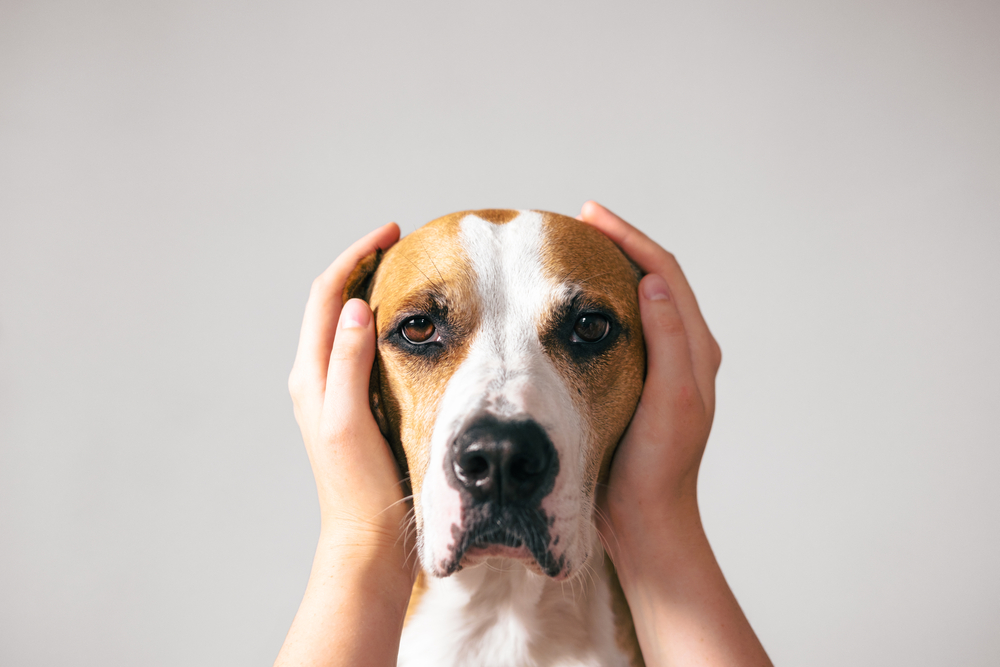
Many pitbull’s that suffer from thunderstorm or fireworks anxiety experience relief in a smaller, more isolated room of the house where music can be played at a loud volume.
A word of caution though, if your dog is also experiences separation anxiety leaving them alone in a room during may be counterproductive.
4. Try Using a Compression Wrap (Available in Many Sizes and Will Fit Your Pitbull)
Many dogs are comforted by the feeling of compression across their body. One popular product many have found success with is the Thundershirt (available on Amazon). The product applies gentle, calming pressure that is very reassuring to many pups. The company claims the product to be helpful for about 80% of the dogs who tried it. It can be used to help calm your australian shepherd during fireworks, thunder, separation, travel, or vet visits, with no training and no medication required.
4. Try an Herbal Supplement for Your Pitbull with Calming Herbs Like Chamomile, Passion Flower, Ginger Root or Valerian Root
Many calming supplements exist for dogs that are palatable for dogs, easy-to-feed, and can help quickly relieve your australian shepherd’s stress and give a sense of safety and calm. Some supplements contain calming herbs like chamomile, passion flower, ginger root, and valerian root are a great option. Some products, such as this bacon flavored soft chew for dogs, contain all of the calming herbs in one. This calming chew is also available on Amazon.

5. Experiment with a Pheromone Diffuser for Your Pitbull
Canine pheromone diffusers mimic the calming pheromone that a mother dog emits while nursing her puppies. The diffuser can help many dogs feel calmer and more comfortable in stressful situations.
The same company that makes the Thundershirt above also makes a product called ThunderEase diffuser, which is also available on Amazon.
6. Try an Anti-Anxiety Supplement Containing L-Tryptophan, L-Theanine or Melatonin
Other popular ingredients in anti-anxiety supplements include the amino acids L-Tryptophan and L-Theanine, both of which offer calming properties and increase the release of “feel good” serotonin in your dog’s body. In addition, some calming products for dogs contain a small amount of melatonin, which can help regulate and improve their sleep. All these of these ingredients are available in some chews such as this. This calming chew is also available on Amazon.

7. Experiment with Using Your Own Scent and sound to Calm Your Pitbull
In my experience, using your own scent and sound to help calm your dog is a powerful strategy in beating anxiety. I stumbled upon this one day with my own dog by accident.
Typically, if I left the home my dog would instantly enter a panic. But one day I needed to take a long phone call, and left my dog outside my bedroom door where I took the call. During the call, she calmly lied next to the door, where she could obviously smell and hear me. It occurred to me that I could possibly mimic this tactic while I wasn’t at home.
I recorded my voice on a CD player and then put it on loop. Then I placed a used t-shirt on the inside of the door where she could easily smell it underneath. To my surprise, I was able to leave the house for a short time. (I monitored her on a video camera). I slowly increased the length of time I left, and always found her calm and sincerely believing that I was just behind the door!
If you’d like to read the full story of how I cured my dog’s extreme separation anxiety, go here.
Another great product to help calm your dog is the Comfort Cuddler Buddy. You can stuff the cozy fleece man with your clothing or pillow case with your scent, and leave with your dog.
Lastly, another popular calming product is the heartbeat puppy toy. Traditionally, these have been used to help calm puppies who recently left their litter. The plush toys come with a warming features as well as a simulated heartbeat. While originally intended for puppies, many dog owners have found they can effectively calm dogs of all ages. This popular model is available on Amazon.

Summary
Defeating your pitbull’s anxiety is possible, but every dog’s journey will look different. I hope the tools and strategies above will be helpful to your journey.
If you’d like to learn more about the Hemp oil and calming chews we use here at iHeartDogs, learn more below.
For best results, you can pair the above Hemp oil with the calming chews below. Between the 2 supplements, they offer 10 active and natural ingredients to help calm your dog without the use of medication.
Frequently Asked Questions:
Pitbulls, or American Pit Bull Terriers, are emotional dogs devoted to their people. They become a friend for life and take loyalty to a fault, but in return, they want to spend much time with you. Find out how to help your Pitbull cope with separation anxiety, anxiousness, and other symptoms that can cause frustration and put distance between you and your four-legged best friend.
Why Is My Pitbull So Anxious?
Pitbulls form strong attachments to their owners, and when they meet their person, they become devoted to level humans may not understand. If you cannot spend at least two hours of your day playing and snuggling with your pup, their behavior can reflect the lack they feel. Leaving your dog in the backyard for days on end or for extended periods of time can lead to depression and destructive behavior.
You will grow to love your Pit Bull more the more time you spend with him. Besides their unwavering devotion and need for time with you, they can also experience anxiety because of genetics, lack of socialization or training, past trauma or abuse, changes in routine or environment, or medical conditions.
Also, many people believe pit bulls to be aggressive even when unwarranted leading to tension. Dogs can sense tension in people, and it makes them tense too. If their owner is tense or other people around are, you can expect your pitbull will sense the emotion and display this in the only way dogs can.
Do Pitbulls Have Bad Anxiety?
Pitbulls are more likely to experience separation anxiety than any other form of anxiety. Of course, each dog differs by personality, and some are more prone, but overall, pit bulls are not anxious. Usually, smaller dogs are prone to bad anxiety because of their small size but medium to large dogs like pit bulls are often quite content as long as their people are nearby.
How Do I Know If My Pitbull Has Anxiety?
Pitbulls do not display anxiety in the same ways as other dogs. Their methods of showing their displeasure often come off as aggressive to humans. Remember, usually, their anxiety stems from either separation anxiety or from the emotions of others.
Here are some signs to look for:
Excessive barking or whining
Destructive behavior
Pacing
Panting
Aggression
Hiding or avoiding contact
How Do You Calm Down A Pitbull?
Like most dogs, Pitbulls can become hyperactive, especially when stressed, because they have limited ways of communicating their emotions. Start by trying to listen to your dog. For example, if she displays the same behavior every day before you leave for work, then it could be her saying she does not want you to go.
The best ways to calm a tense dog include exercise, distraction, training, and a consistent routine. You can try various calming techniques, such as massage, deep breathing exercises, or gentle music, to help relax your pitbull too. Dog treats with CBD oil and other soothing herbs can work wonders for a stressed-out pup.
Do Pitbulls Have Mental Problems?
Pitbulls have a delicate side or sensitivity that may come off as mental problems. However, this breed rarely suffer mental issues besides separation anxiety. When they do not get enough attention, socialization, or exercise, they may become depressed, but these are environmental causes. They are not inherently prone to mental problems or aggression, despite common misconceptions. Just like any other dog breed, they can be loving and well-behaved pets with proper care and training.
Do Pitbulls Get Attached To One Person?
Pitbulls, like many other dog breeds, can become attached to one person, but it’s not a guarantee. They are known for their loyalty and affectionate nature, so they are capable of bonding closely with their owners or a specific member of the family. Pick a Pitbull if you want a lovable, funny, social animal who craves human interaction and companionship.
As they are less likely to become attached to a single person, these dogs are great family pets. They love children and maintain a stable temperament with them, which is rare. Ultimately, they will take everyone in the family as part of their pack and be loyal and lovable to them all.
Are Pitbulls Emotionally Sensitive?
Pit bulls often have a high sensitivity level, especially when it comes to separation anxiety. When it comes to making decisions, Pitbulls often act on their emotions, and they can react inappropriately to stressful events. Redirecting their overly emotional brain into a thinking, problem-solving one is a challenge, but teaching her to think before acting can help. Thankfully, when bullies have something to learn, they learn it very quickly.
Furthermore, Pitbulls are known for their empathy, and they can sense when their owners are upset or distressed. In response, they may try to comfort their owners by sitting close to them, offering affectionate licks, or simply being present. Each dog is different, though, as some Pitbulls may be more emotionally sensitive than others, while others are less attuned to their owners’ emotions.
Ultimately, the emotional sensitivity of a Pitbull, or any dog, will depend on factors such as their individual personality, upbringing, and life experiences. Providing a Pitbull with proper training, socialization, and love can help ensure they develop into emotionally well-balanced and sensitive dogs.
What Triggers Pitbull Anxiety?
Like all dogs, Pitbulls can experience anxiety in response to various triggers. Some common triggers of anxiety in Pitbulls include:
Separation: Pitbulls are known for being highly social and affectionate, so separation from their owners or being left alone for extended periods can trigger anxiety.
Loud noises: Loud noises, such as thunderstorms, fireworks, or loud music, can be overwhelming and frightening for Pitbulls, causing anxiety.
Changes in routine: Changes in daily routines or unfamiliar situations, such as moving to a new home or traveling, can be stressful for Pitbulls and trigger anxiety.
Lack of socialization: Pitbulls that have not been adequately socialized may feel anxious in new situations or around unfamiliar people or dogs.
Fear: Pitbulls, like all dogs, can experience fear in response to certain situations, such as encountering aggressive dogs, unfamiliar people, or being in unfamiliar environments.
Medical conditions: Certain medical conditions, such as thyroid issues or chronic pain, can contribute to anxiety in Pitbulls.
Emotions: Again, Pitbulls can sense others’ emotions as they are highly sensitive. They will feed off of other emotions, which can cause negative responses.
Why Is My Pit Bull So Emotional?
Yes, it’s common for Pitbulls to be emotional dogs. Pitbulls are loyal, affectionate in nature, and have a strong desire to please their owners, which can make them highly attuned to their owners’ emotions. They are also intelligent and perceptive animals that are capable of understanding and responding to a wide range of human emotions.
However, like all dogs, individual Pitbulls can have their own unique personalities and temperaments, which can influence their emotional sensitivity. Some Pitbulls may be naturally more emotional or sensitive than others, while others may be more independent or less attuned to their owners’ emotions.
If your Pitbull is particularly emotional or sensitive, there are a few things you can do to help them feel more comfortable and secure. Providing regular exercise, playtime, and socialization can help reduce anxiety, while training and positive reinforcement can help build your Pitbull’s confidence.
It’s also essential to provide your Pitbull with a consistent routine, as changes in routine or environment can be stressful for emotional dogs. If you’re concerned about your Pitbull’s emotional state or behavior, then you may want to talk to a certified behaviorist to help you create a plan to teach your Pitbull to handle anxiety.
- Best Joint Supplement for Dogs
- Best CBD Gummies for Dogs
- Goat's Milk for Dogs
- Skin & Coat Supplements for Dogs
- Weight Gain Supplements for Dogs
- Muscle Building Supplements for Dogs
- Heart Supplements for Dogs
- Multivitamins for Dogs
- Pill Pockets for Dogs
- Digestive Enzymes for Dogs
- Turmeric for Dogs
- Liver Supplements for Dogs
- Tear Stain Supplement for Dogs
- Breath Fresheners for Dogs
- Kidney, Urinary, & Bladder Supplements for Dogs
- Stool Eating Deterrent for Dogs
- Eye Supplements for Dogs
- Melatonin for Dogs
- Apple Cider Vinegar for Dogs
- Green Lipped Mussels for Dogs
- L Theanine for Dogs
- Chondroitin Supplements for Dogs
- MSM for Dogs
- Valerian Root for Dogs
- Chamomile for Dogs
- Boswellia for Dogs
- L Tryptophan for Dogs
- Yucca for Dogs
- Licorice Root for Dogs
- Bromelain for Dogs
- Papain for Dogs
- Devil's Claw for Dogs
- Quercetin for Dogs
- Hemp gummy for dogs
- Best Hemp Dog Treats
- Best Hemp Oil for Dogs
- Best Calming Treats, Chews, & Supplements for Dogs
- Best Bone Broth for Dogs
- Best Fish Oil for Dogs
- Best Probiotics for Dogs
- Best Hip Dysplasia Supplements for Dogs
- Best Colostrum for Dogs
- Best Quercetin for Dogs
- Best Greens for Dogs Supplements
- Best Vitamin C Supplements for Dogs
- Best Probiotic for Dog with Allergies
- Best Taurine Supplements for Dogs
- Best Dog Food Toppers
- Best Anal Gland Supplement for Dogs
- Best Dog Probiotic Powder
- Best CoQ10 Supplement for Dogs
- Best Liquid Glucosamine for Dogs
- Best Wrinkle Creams, Balms, and Wipes for Dogs
- Best Puppy Calming Treats
- Best Colloidal Silver for Dogs
- Best Adaptogen Supplements for Dogs
- Best Cognitive Supplements for Dogs
- Best Bee Pollen for Dogs
- Best Vitamin A Supplements for Dogs
- Best Vitamin E Supplements for
- Best Liquid Glucosamine Supplements for Dogs
- Best SAM-e Supplements for Dogs
- Best Hyaluronic Acid Supplements for Dogs
- Best Apple Cider Vinegar Supplements for Dogs
- Best Diarrhea Medicine for Dogs
- Best Milk Thistle for Dogs
- Best Turkey Tail Mushroom Supplements for Dogs
- Best Astaxanthin Supplements for Dogs
- Best Lutein Supplements for Dogs
- Best Electrolyte Supplements for Dogs
- Best Coconut Oil for Dogs
- Best Prenatal Vitamins for Dogs
- Best Puppy Milk Replacements
- Best Iron Supplements for Dogs
- Best Dewormer Products for Dogs
- Best Mange Medications for Dogs
- Best Cough Relief Products for Dogs
- Best Sinus Relief Products for Dogs
- Best Collapsed Trachea Supplements for Dogs
- Best Fireworks Anxiety Relief Products for Dogs
- Best Thunderstorm Anxiety Relief Products for Dogs
- Best Travel Anxiety Relief Product for Dogs
- Best Supplements for a Dog with a Torn ACL
- Best Supplements for a Dog with Patellar Luxation
- Best Supplements for a Dog with Intervertebral Disc Disease
- Best Zinc Supplements for Dogs
- Best Biotin Supplements for Dogs
- Best Tart Cherry Supplements for Dogs
- Best Resveratrol Supplements for Dogs
- Best Ginkgo Biloba Supplements for Dogs
- Best Ashwagandha Supplements for Dogs
- Best Supplements for Dogs with Cushing's Disease
- Best Adrenal Supplements for Dogs
- Best NAD+ Supplements for Dogs
- Best NMN Supplements for Dogs
- Best Supplements for Dogs with Dementia
- Best Supplements for Dogs with CCD(Canine Cognitive Dysfunction)
- Best Fiber Supplements for Dogs
- Best Spirulina for Dogs
- Best Hairball Remedies for Dogs
- Best Eye Drops for Dogs with Allergies
- Best Magnesium Supplements for Dogs
- Best Brushes for Double-Coated Dogs
- Best Dandelion Root Supplements for Dogs
- Best Probiotic for Dogs with Yeast Infections
- Best Flaxseed Oil for Dogs
- Best Chamomile Supplements for Dogs
- Best Lavender Supplements. Treats & Sprays for Dogs
- Best Collagen Supplements for Dogs
- Best Kelp Supplements for Dogs
- Best Activated Charcoal for Dogs
- Best Slippery Elm Supplements for Dogs
- Best Supplements for Dogs with Seizures & Epilepsy
- Best Antioxidant Supplements for Dogs
- Best Ubiquinol Supplements for Dogs
- Best Hormone & Glandular Supplements for Dogs
- Best Thyroid Supplements for Dogs
- Best Iodine Supplements for Dogs
- Best Dog Shedding Supplements for Dogs
- Best Detox Supplements for Dogs
- Best Postbiotics for Dogs
- Best Aspirin Products for Dogs
- Best Dog Anti-Nausea Products
- Best Dog Mouthwashes
- Best Camelina Oils for Dogs
- Best Hemp Seed Oils for Dogs
- Best Natural Anti-Inflammatories for Dogs
- Best Cancer Supplements for Dogs
- Best Sardine & Anchovy Oils for Dogs
- Best Fatty Acid Supplements for Dogs
- Best Chia Seed Supplements & Treats for Dogs
- Best Olive Oils for Dogs
- Best Amino Acid Supplements for Dogs
- Best Moringa Supplements for Dogs
- Best Echinacea Supplements for Dogs
- Best Cranberry Supplements for Dogs
- Best D-Mannose Supplements for Dogs
- Best Nettle Leaf Supplements for Dogs
- Best Marshmallow Root Supplements for Dogs
- Best Astragalus Supplements for Dogs
- Best Pumpkin Seed Supplement for Dogs
- Best Supplements for a Dog Wetting The Bed
- Best Blueberry Supplement for Dogs
- Best Bromelain Supplements for Dogs
- Best Yucca Supplements for Dogs
- Best Ginger Supplements for Dogs
- Best Rosehip Supplements for Dogs
- Best Allergy Medicines for Dogs
- Best Reishi Mushroom Supplement for Dogs
- Best Maitake Mushroom Supplement for Dogs
- Best Chaga Mushroom Supplement for Dogs
- Best Shiitake Mushroom Supplement for Dogs
- Best Cordyceps Mushroom Supplement for Dogs
- Best Lion's Maine Supplement for Dogs
- Have question? - Ask in our Dog Health Forum
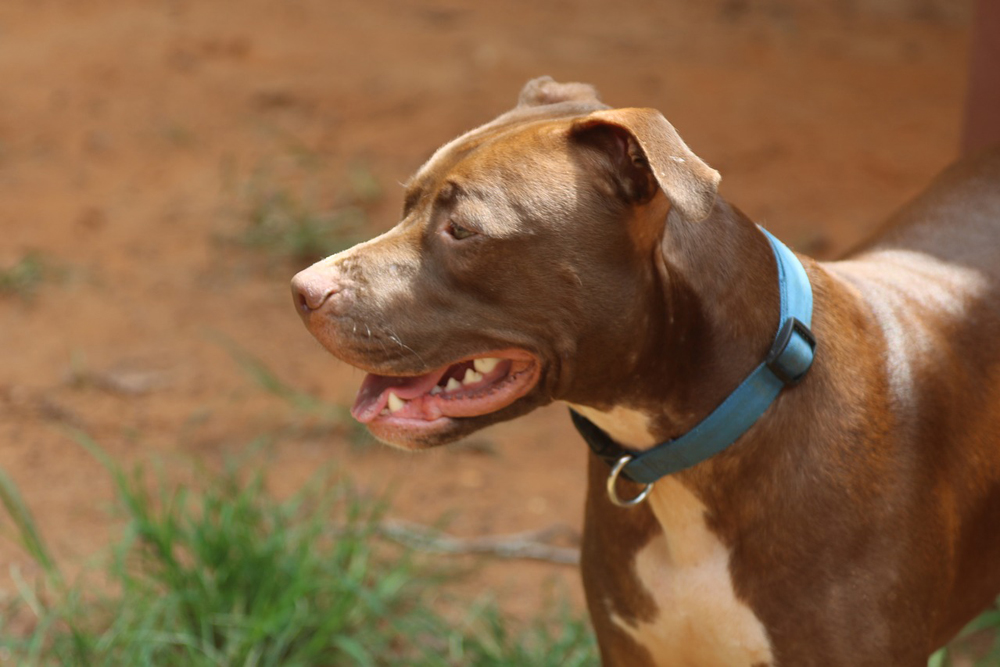
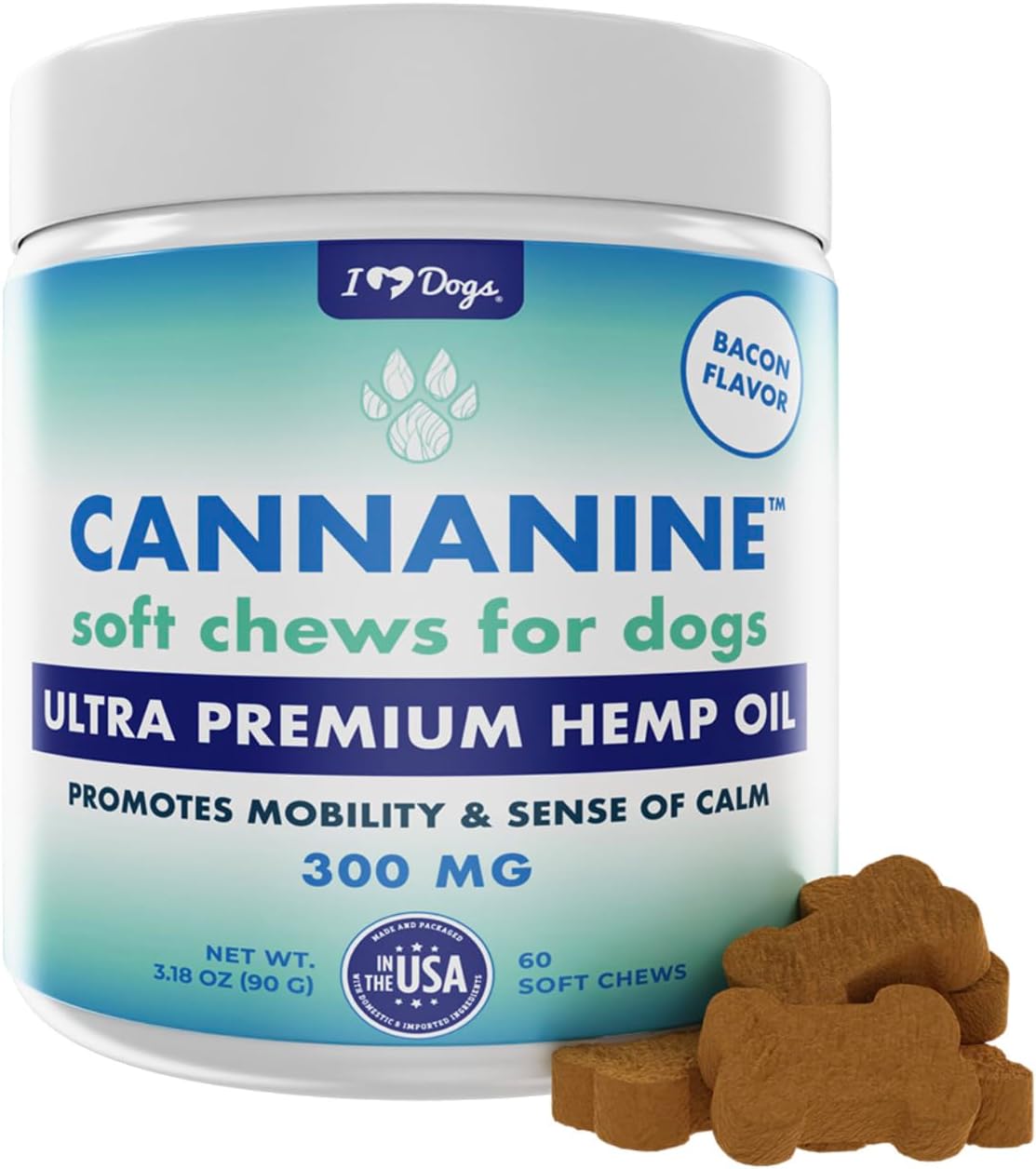
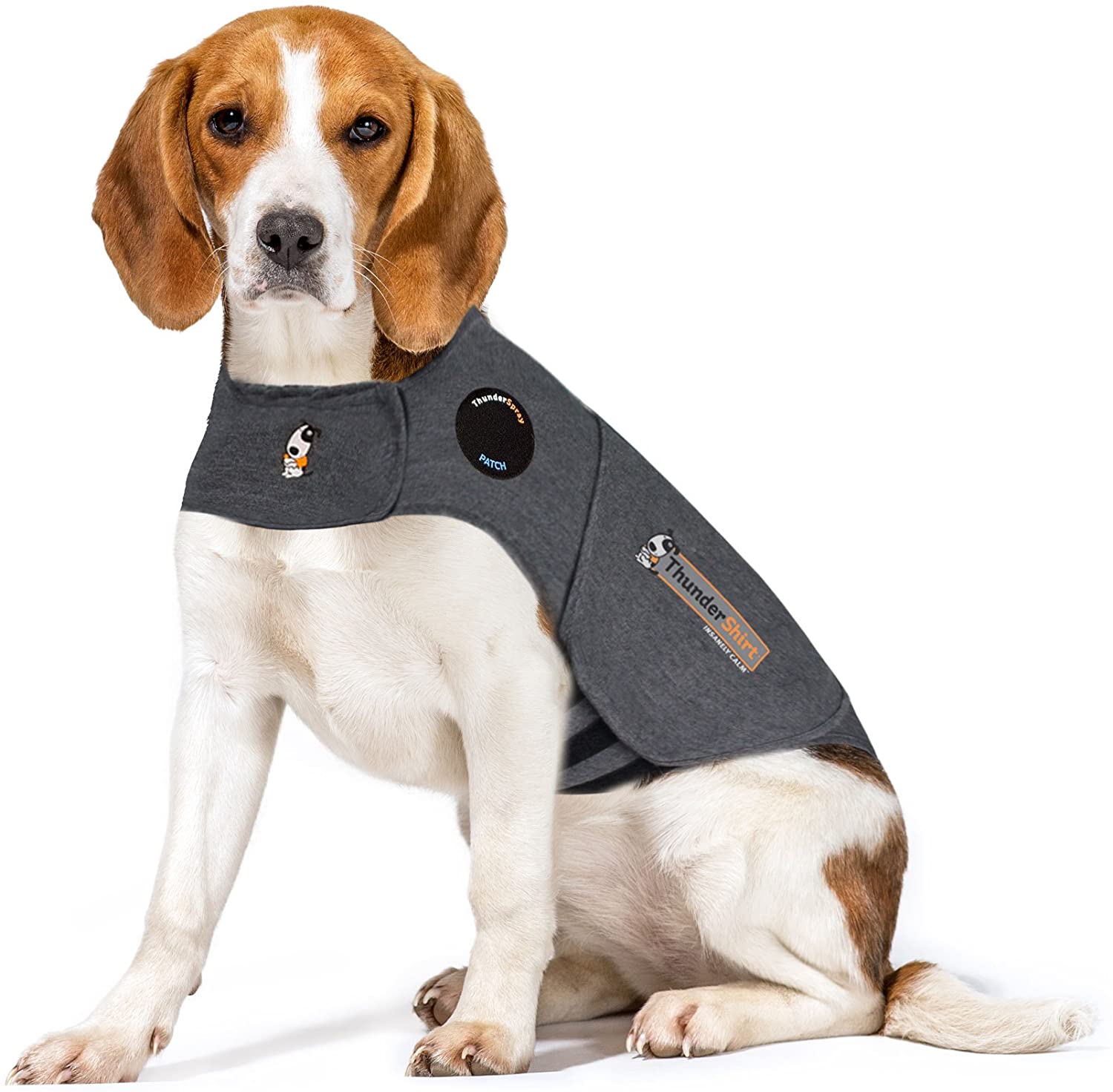

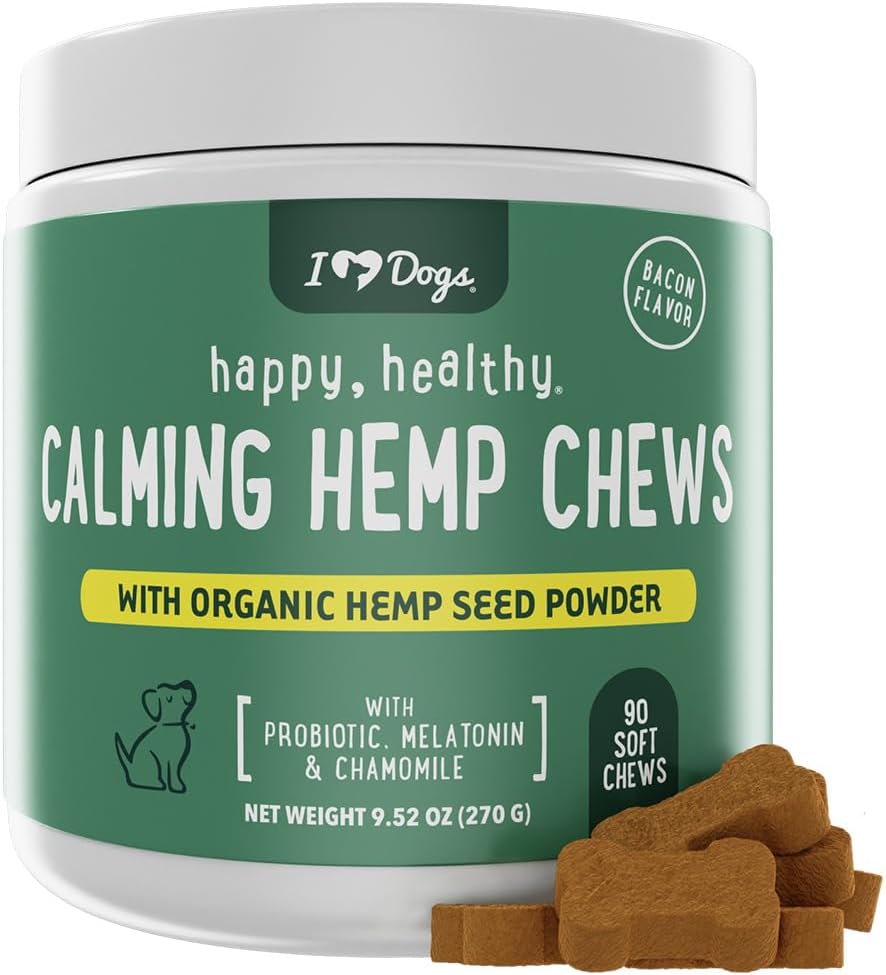
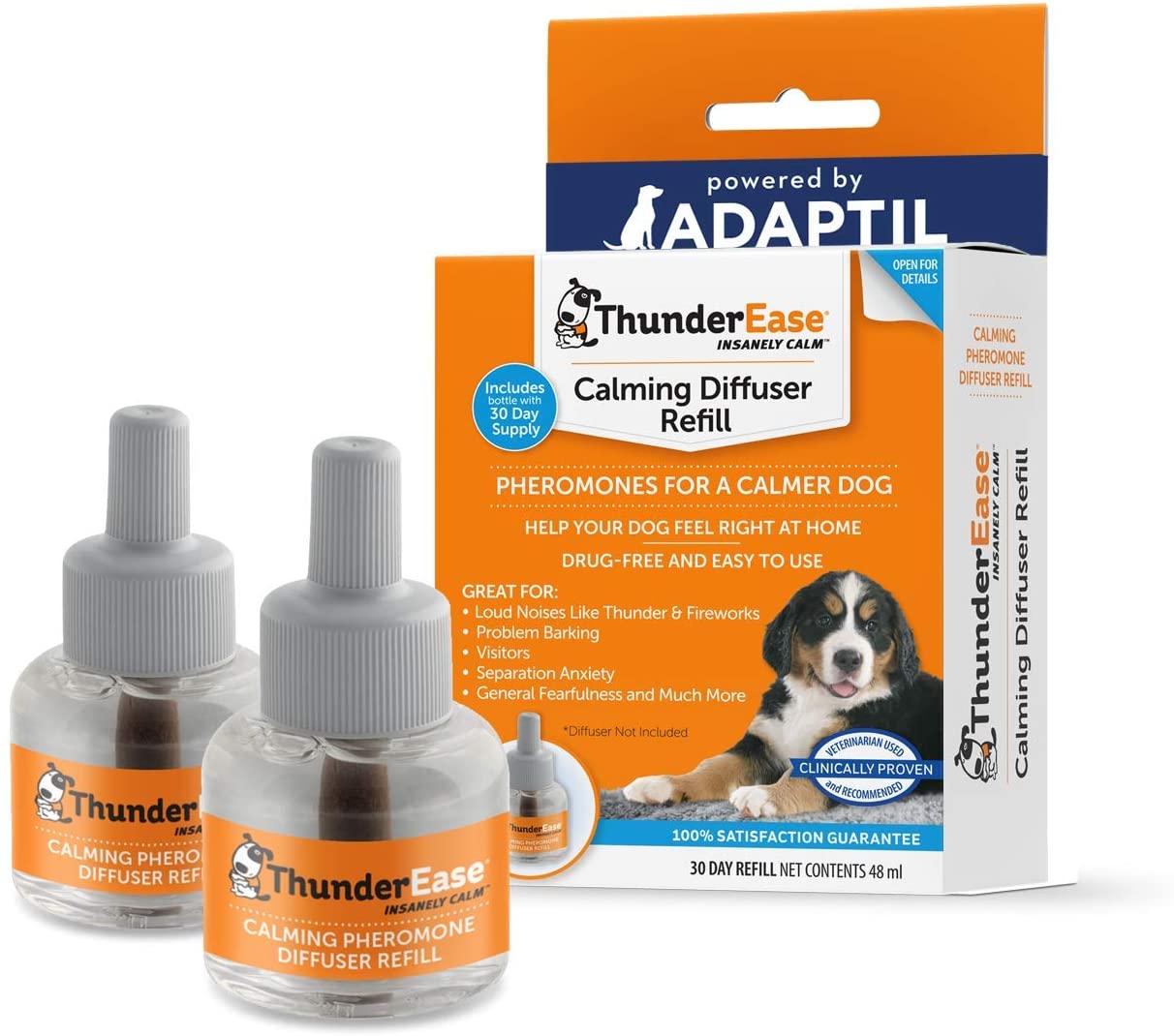

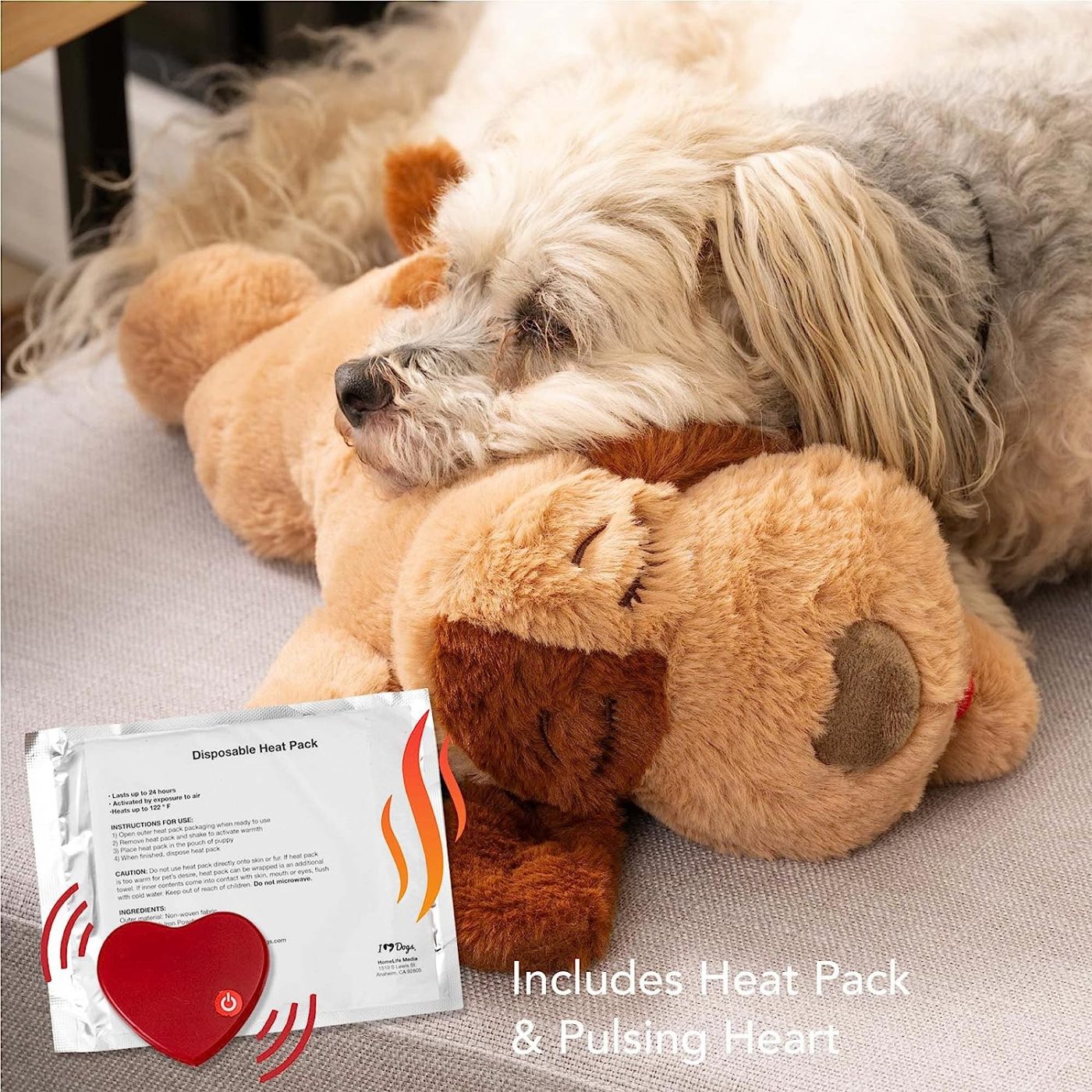
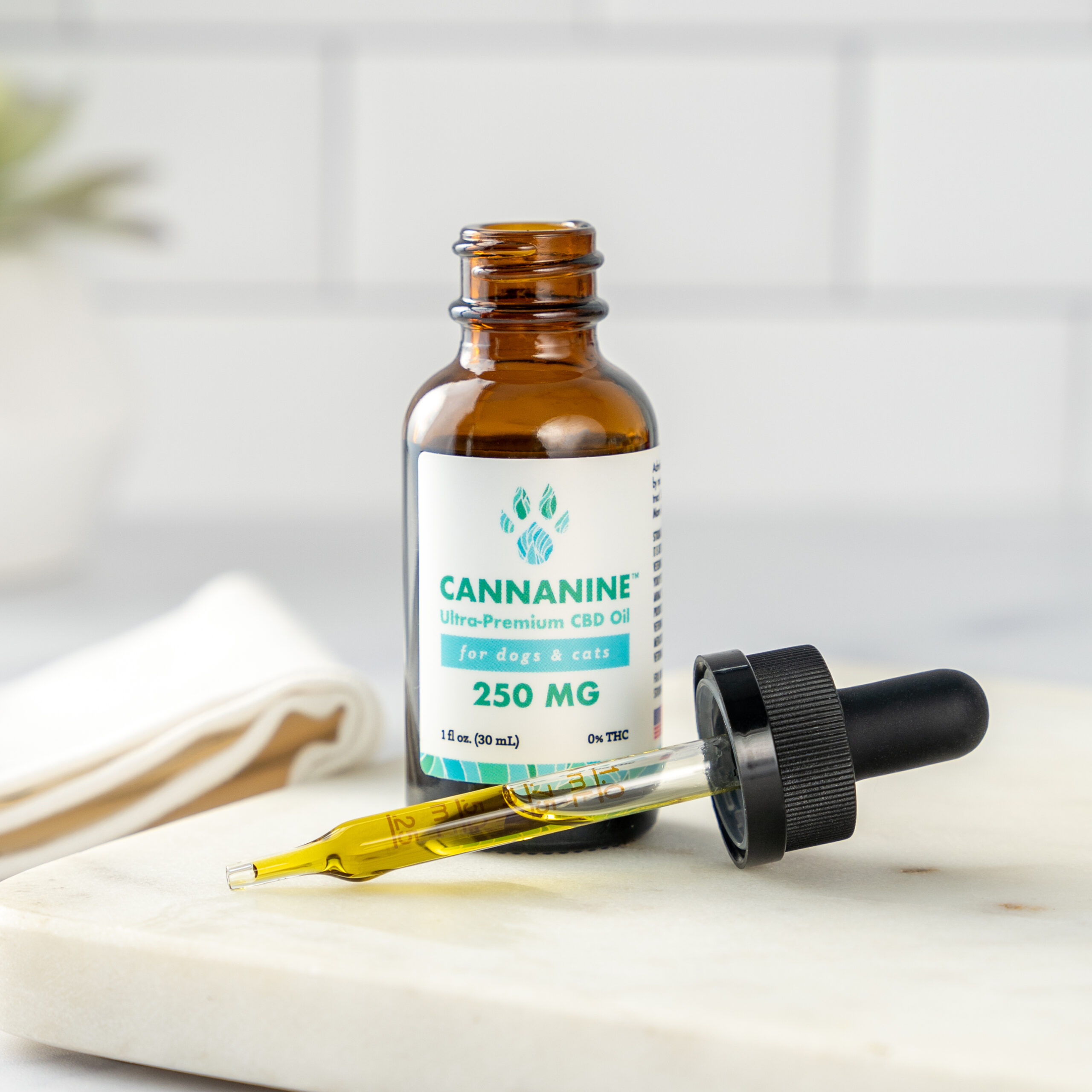
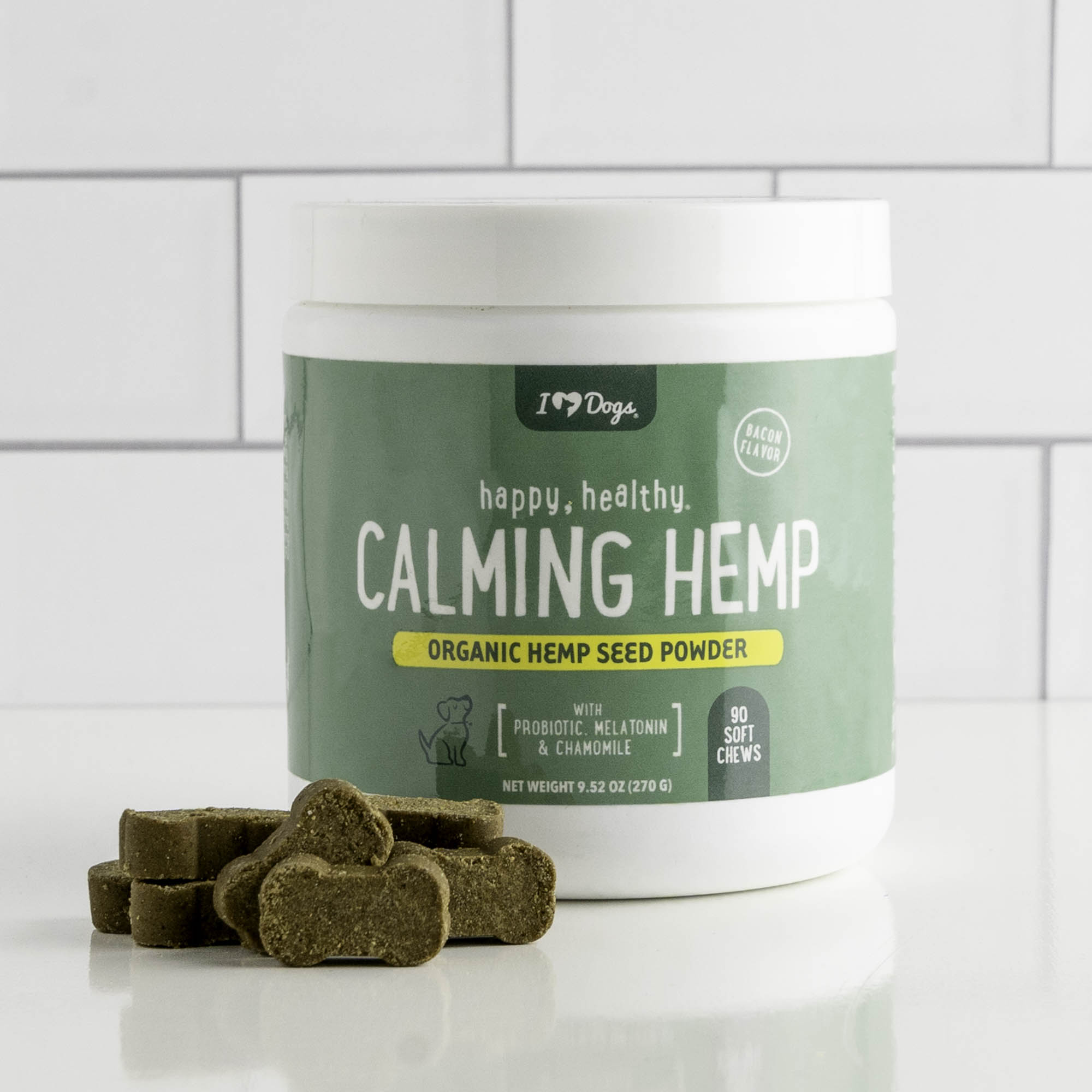
 Toledo, United States.
Toledo, United States.